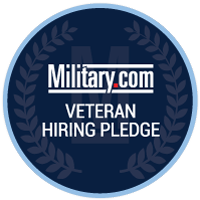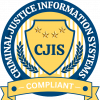1. What is the most common thread you find among all nurses across all levels of experience?
Nurses want REAL appreciation. Telling them they are heroes when cameras are around, putting their pictures on billboards, and making t-shirts for them to spread amongst the community, is not REAL appreciation. Nurses haven’t fallen for any of it. I believe the nursing shortage is the result of nursing fatigue and a lack of real appreciation. Starting with COVID, nurses have been taken advantage of, and now they will not stand for it. Nurses have been continually asked to do more without meaningful compensation. When told the money wasn’t there for them to be paid, they eventually left or went to agency. Now, not surprisingly, the money is there to pay them as they knew all along their jobs were essential. We here at CorrHealth have a deep, meaningful understanding of this and ensure our nursing appreciation is well-received and they are truly respected.
2. Are there any Schools of Nursing (SON) programs you would like to see implemented at correctional facilities?
I have been told by countless nurses that they wish they would have known about the wonders of nursing in a correctional facility years prior to starting their journey. With credit to those nurses, I have swiped the idea that rotations within correctional facilities should be a mandatory part of SON curriculum.
3. What has been the most exciting aspect of your role as CMO?
Oh wow, how do I pick one? I would have to say the ability to collaborate with all aspects of correctional healthcare is the most exciting aspect of my role as CMO. Often, a position paints you into one specific location or category. As CMO, I get the honor and privilege of working with all facets of the industry and our exorbitantly talented providers. I am continually learning how to be a better provider through discussions with, and chart reviews of, our brilliant and passionate MDs, DOs, NPs, and PAs. I also benefit from engaging in consultations with our operational leadership and our numerous, multi-talented nurses, the heartbeat of healthcare. It is awe-inspiring day in and day out to witness the efforts made by our nurses to ensure high-quality, top-notch healthcare is provided to all our inmate patients every day. Finally, I get to sit down and learn from jail administrators and county officials, which is an incredible opportunity to expand my own knowledge of the security side of correctional healthcare. This knowledge, applied to evidence-based medical care, allows me to create innovative and ever-evolving practices and protocols to keep CorrHealth at the forefront of correctional medicine.
4. Vacations: beach or mountains?
Wherever my family wants to go. Nothing brings me more joy than seeing my family happy. As long as the destination has variety and different planned activities, I’m in!
5. How can we best impact the needs of our counties and the communities we serve?
Reducing recidivism is the greatest impact we can have on the needs of our counties and the communities we serve. This is best accomplished by identifying both the potential lack of specific service(s) within the community as well as any barriers to care. Personally, I believe much of the recidivism we are seeing today is related to substance abuse. I am confident that both bringing comprehensive MAT (Medication Assisted Treatment) programs to the county jails we serve, as well as bringing education to the communities and encouraging their simultaneous commitment to community-based MAT facilities will accomplish this goal.
6. What unique skills or perspectives do you value most in the field of medicine?
There are many skills or perspectives that I value, but if required to choose, I’d say the ability to see an inmate patient as a patient and to understand that we cannot possibly understand all medicine has to offer. The only way to truly care for a patient is to see them as a patient in need and deserving of your care. Second, all those in medicine are aware that there is much we do not know. A treatment or a diagnosis may not be as simple as one thinks. If one only knows one diagnosis and doesn’t understand that there are many more out there, then every patient will look the same. Thus, for those of us in medicine, we must be constantly asking questions and pursuing further knowledge, so we never become complacent.
7. When doctors get together at NCCHC or other industry conference, what do you talk about the most?
Trying to get the inside scoop on doctor talk? When doctors get together at industry conferences, they discuss complicated topics and medical outcomes in hopes of expanding their own knowledge/programs. These topics include, but are not limited to, hunger strikes, inmate patients with end stage diseases, and MAT(Medication Assisted Treatment), especially Methadone. Doctors, when amongst themselves, are very open and understand that collaboration is the best means to achieve advancement.
8. Breakfast burrito or breakfast tacos?
Prior to moving to Texas, the answer was unequivocally breakfast burrito. But, since moving to Texas, I have seen the breakfast taco light. My pendulum has completely swung to the other side and I’m now the player/coach/owner of Team Breakfast Taco.




